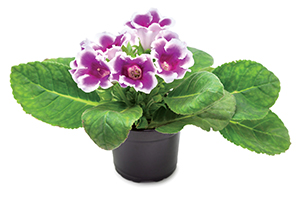Writer: Veronica Lorson Fowler
Photographer: Duane Tinkey
Just as there are child music and math prodigies, there are plant prodigies. And Elvin McDonald has always been one of those.
McDonald, who lives in West Des Moines and is in his ninth decade, has had an illustrious career including writing and illustrating some 75 gardening books. He’s also held various editor positions with Better Homes & Gardens and is secretary emeritus of the American Horticultural Society.
Now, to honor McDonald and to dedicate a new official collection of gesneriads, the Greater Des Moines Botanical Garden will open a special exhibit of the plant on Sept. 17. Several dozen different gesneriads will be on display, and McDonald will also teach a master’s class.

The plant has always been one of his favorites. In his early teens, growing up on his parents’ farm in the Oklahoma Panhandle, McDonald grew a wide variety of gesneriads in a greenhouse he built with help from his father.
“Whenever I got any money, I always spent it on plants and books,” says McDonald, who also started freelancing horticulture articles to magazines and other publications to earn spending money.
Gesneriads are perfect for collectors. The family Gesneriaceae includes more than 3,500 species and 150 genera. The best known are African violets, with gloxinia a close second. But there are hundreds more.
McDonald started gaining national attention at age 13, attracting visitors from all over the country to see his plants. A story about gloxinias in a 1949 magazine piqued his interest, and he wrote a letter to the magazine, asking anyone interested in starting a gloxinia society to get in touch. Several hundred people from around the globe expressed interest, and Elvin founded what ended up becoming the Gesneriad Society, which is still going strong.
In the same way that art museums build their collections of a certain artist or movement, the Greater Des Moines Botanical Garden is focusing on expanding its collections, says horticulturist Aaron Harpold. These include, for example, more than 700 genera of coleus, one of the largest in the world.
“This gesneriad collection will set the pattern” for the Botanical Garden’s collection expansion, McDonald says. “People will come from all over to see it.”











